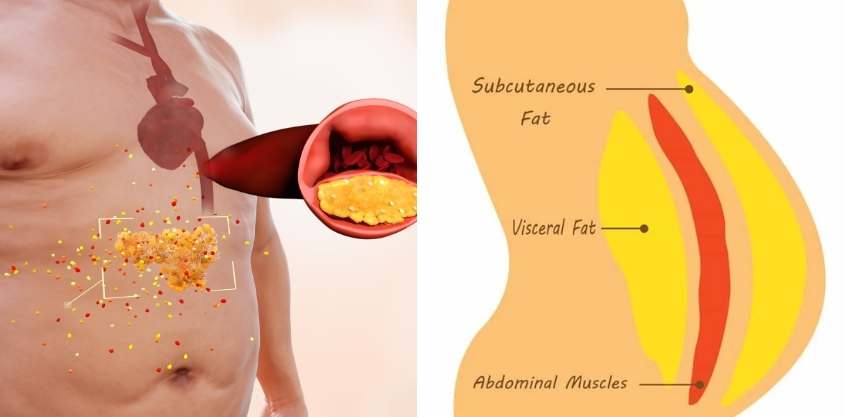Visceral fat is a hidden issue that can have major repercussions, including stroke, some malignancies, type 2 diabetes, and other conditions. It isn’t discussed enough outside of the health and medical communities.
Most people are unaware they have visceral fat, which surrounds your important organs and is positioned deep within your abdomen.
Sean Marchese, a qualified medical technician with more than 15 years of expertise in direct patient care and involvement in oncology clinical trials, was interviewed by Eat This, Not That to learn more about visceral fat and its origins.
Why is visceral fat so dangerous?
According to Marchese, “Visceral fat contains deposits of body fat found deep beneath the skin, adjacent to organs such as the liver and intestines. The term visceral alludes to deep tissues or organs.
Visceral fat can interfere with metabolism, digestion, or even the heart and nervous system due to its close proximity to vital organs and bodily systems. The immune system’s cytokine signals and aberrant hormone levels brought on by visceral fat could be harmful to the cardiovascular system.
Find out more about: Bad Lifestyle Habits That Are A Risk For Developing Breast Cancer
Why don’t more people know about visceral fat?
“Just under the skin, subcutaneous adipose tissue makes up around 90% of body fat,” claims Marchese.
Visceral fat is significantly more hazardous than other types of fat, which many individuals may not be aware of, according to him.
An apple-shaped physique, as opposed to a pear-shaped one, which denotes fat deposits under the skin of the hips, is one of the indicators that you have visceral fat.
How can one determine whether they have visceral fat?
Marchese claims that visceral fat causes modest but observable changes to the body.
According to him, an increase in visceral fat may be to blame if you believe that your body form has altered over time or if you experience changes in mood, metabolism, or hunger (symptoms that many people connect with aging).
Genetics
Visceral fat can be prevented in a variety of ways, but genetics are beyond our control. The distribution of body fat may be influenced by our DNA, which explains why we all have unique body types and forms, according to Marchese.
One way to avoid visceral fat is to stay active
“When we workout, our body uses fat to create energy and burn calories,” claims Marchese. When we consume more calories than we expend, our bodies store them as fat, which over time can develop harmful substances that can cause disease.
Food and nutrition are very important.
Alcohol, sugary drinks, and sweet foods all include a lot of calories that not only boost fat storage but also trigger the release of cortisol and other chemicals that encourage the accumulation of belly fat.
A poor diet and eating too many calories might make you tired and demotivate you to work out, which increases your chance of accumulating belly fat.




